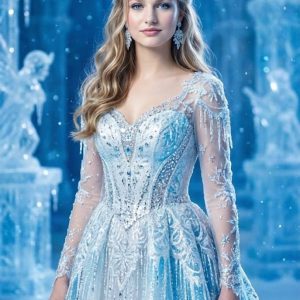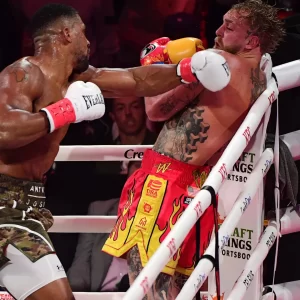Riley Green Launches The ’90s Country Show on Apple Music to Celebrate a Golden Era

For Riley Green, country music has always been about roots—the kind you find in small towns, family traditions, and the songs that defined Friday nights at the local honky-tonk. Now, the rising star is channeling that passion into a new project: The ’90s Country Show, a six-episode radio series on Apple Music Country dedicated to celebrating the decade that turned country into a mainstream cultural force.
A Tribute to the Decade That Changed Country
Premiering this fall, The ’90s Country Show is more than just a nostalgia trip. It’s an exploration of the artists, stories, and sounds that brought country music into the heart of American pop culture. In the 1990s, stars like Garth Brooks, Shania Twain, Alan Jackson, Reba McEntire, and Brooks & Dunn transformed country from a niche genre into a dominant force on radio and television.
It was the decade when line dancing swept across America, when cowboy hats appeared on MTV, and when country albums topped charts alongside pop and rock. For Green, who grew up immersed in this era, honoring the music is a way of reconnecting fans with the foundation of today’s country sound.
Riley Green: A Modern Voice With Classic Roots
Green, 35, is no stranger to drawing inspiration from the past. Known for hits like There Was This Girl and I Wish Grandpas Never Died, he has built his career on blending traditional storytelling with contemporary production. His Alabama upbringing gave him firsthand exposure to the kind of music that dominated the ’90s airwaves, from Alan Jackson’s twangy anthems to the soaring ballads of Martina McBride.
In interviews promoting the series, Green emphasized how formative the decade was for him. “The ’90s were when country music was everywhere—on the radio, on TV, even in the way people dressed,” he said. “It shaped me as an artist, and I think it shaped a whole generation of fans.”
Six Episodes, Six Themes
Each of the six episodes of The ’90s Country Show is designed to highlight a different aspect of the decade:
- The Superstars – Spotlighting the megastars who took country global, from Garth Brooks’s stadium tours to Shania Twain’s crossover success.
- Neon and Line Dancing – Exploring the cultural phenomenon of line dancing and the honky-tonk explosion.
- Ballads and Broken Hearts – Celebrating the decade’s unforgettable love songs and tearjerkers.
- Cowboy Cool – Looking at how fashion, image, and branding helped country artists dominate mainstream culture.
- Women of the ’90s – Honoring the powerhouse female voices—Faith Hill, Martina McBride, Reba, and The Chicks—who changed the genre’s narrative.
- Legacy and Influence – Reflecting on how the ’90s sound paved the way for modern country, including artists like Green himself.
Listeners can expect not just music but also commentary, stories from Green, and guest appearances by fellow artists reflecting on their favorite ’90s memories.
Why the ’90s Still Matter
Three decades later, the influence of the ’90s country boom is undeniable. Streaming data consistently shows spikes in plays of ’90s tracks, while TikTok trends have resurrected classics like Jo Dee Messina’s Heads Carolina, Tails California. Younger artists frequently cite the era as their primary influence, from Kacey Musgraves’s storytelling to Luke Combs’s powerhouse vocals.
For many fans, the ’90s represent a “golden era”—a time when country balanced tradition with modernity, before debates about pop-country versus outlaw-country began to dominate discourse. It was the sweet spot where fiddle and steel guitar coexisted with arena-rock production.
Green’s series taps into that longing, offering both a history lesson and a soundtrack for those who lived through it.
Fans React
Early reactions from fans have been overwhelmingly positive. Many see the series as validation of their own nostalgia for the era. Social media buzz has been filled with comments like:
- “Finally, someone is giving the ’90s the love it deserves!”
- “Riley Green is the perfect guy for this—he gets it.”
- “Can’t wait to hear the stories behind the songs I grew up on.”
The show has also sparked discussion among younger listeners discovering ’90s country for the first time. For Gen Z fans, The ’90s Country Show acts as a curated gateway into a decade that predates their own playlists but feels freshly relevant.
The Cultural Legacy of Line Dancing
One of the most intriguing aspects of the series is its exploration of line dancing. In the 1990s, songs like Brooks & Dunn’s Boot Scootin’ Boogie helped turn a regional dance craze into a national phenomenon. Country bars across the country hosted line dancing nights, and even mainstream films and TV shows featured the choreography.
Green notes that the cultural crossover is part of what made the decade so special. “It wasn’t just music—it was a whole lifestyle,” he explained. “You had people who didn’t even consider themselves country fans out there line dancing to Boot Scootin’ Boogie or singing along to Shania.”
Carrying the Torch Forward
By producing The ’90s Country Show, Apple Music Country is also making a strategic move. The platform has leaned heavily into curated shows hosted by artists, recognizing that fans want not just playlists but stories and context. Green’s involvement adds credibility, bridging the gap between classic and contemporary.
For Green, the show is part of his broader mission to keep country’s roots alive while continuing to evolve. His own concerts often include covers of ’90s classics, and he frequently cites the era’s stars as models for his career.
“I want my fans to know where this music came from,” he said. “If you love country today, it’s because of what happened in the ’90s.”
Conclusion
With The ’90s Country Show, Riley Green is not just reminiscing—he’s preserving a legacy. The six-episode series serves as both tribute and education, reminding longtime fans of the joy of their favorite decade while introducing younger listeners to the era that made country cool.
By celebrating the decade of neon lights, line dancing, and larger-than-life stars, Green is shining a spotlight on a pivotal moment when country music didn’t just reflect American culture—it helped shape it.
For Green, the project is personal. For fans, it’s a gift. And for country music, it’s a timely reminder that the songs that once filled jukeboxes and stadiums still have the power to make boots stomp and hearts soar.





